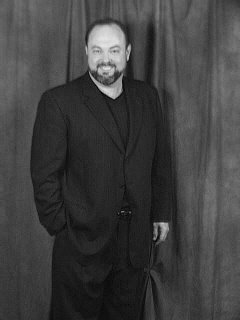
Former Lutheran pastor John Fenton, has a thought provoking article on his blog about his journey to Orthodoxy.
In it he is asked the question "Where is the Church?"
For me, this is a fundamental question that has a real answer.
You see, for me, my own spiritual journey brought me to the same place. For years I believed the Church was "invisible" made up of all those who claimed Jesus as their Savior and had accepted His lordship over their lives.
While this pietistic theory of ecclesiology seemed to serve me well, it eventually has to end in heresy because the Church IS the Body of Christ. Christ is fully God and fully man. He was visible and real during His earthly ministry, and His Body still maintains these characteristics of reality - visibility and authenticity.
To suggest otyherwise is to toy with the heresy of docetism.
Ecclesiology is the "undiscovered country" for most of Protestantism, and specifically Evangelicalism and Pentecostalism.
When one confronts the issues related to this primary question "Where is the Church?" one will begin to see other issues become clearer.
Ultimately, this question, as with most other questions of theology end up with the Person of Jesus Christ. All heresies somehow attempt to distort Who Jesus Christ is or to deny Him. The issue of ecclesiology is no different. A weak ecclesiology WILL result in a weakened Christology, and that "corruption" will eventually make its way into the everyday lives of believers.
What we believe theologically always incarnates itself in our behavior. That's why we will come to the final judgement as either "sheep" or "goats." What we already "are" will only be revealed there, not imposed there.
Lord, have mercy.



4 comments:
If the Church is "the Body of Christ," and ecclesiology is basically Christology, then what Christologies are reflected in Protestantism and Roman Catholicism?
Well, I am reluctant to speak for either the Protestants (as if that were possible with the variations among different Protestant groups)or the Roman Catholics, except to say that my own expereince in Pentecostalism is a very undefined ecclesiology, sometimes to the point of non-existence.
However, I would not reduce what I said to "ecclesiology is basically Christology." That is too simplistic to capture my intention.
My main point was that Ecclesiology cannot be seperated or "teased out" of the rest of our theology. And theology isn't just some theory that we hold in our heads apart from our daily lives. Our Theology informs our actions, and that's why our theology is so very important.
How I understand the Church is usually a reflection of the rest of my theology.
As was said centuries ago "the rule of faith is the rule of prayer."
Finally, I don't really believe that the Church being the "Body of Christ" is debatable. It is the clear testimony of scripture and the consistent testimony of the Fathers.
So, the Church is the Body of Christ. Now the challenge is to press out the ramifications of that settled truth.
If the Church is the Body of Christ then ecclessiology is necessarily christology.
I do think that Protestantism tends toward docetism-gnosticism on any number of grounds: sacramentology, ecclesiology, their understanding of tradition and apostolicity, etc.
With regard to Roman Catholics, I would say that they tend toward a quasi-Nestorianism that separates the Body of God from God. This is why they tend to over emphasis the Pope and institutional structures.
Orthodoxy appears to be more Christologically sound in that it retains the concept of a Body inspired by the activities of the Spirit to maintain the tradition of the Apostles.
OK, I'll give you that Ecclesiology is undeniably linked to Christology, but a classic mistake in Theology is to compartmentalize truth.
Ecclesiology is also a direct reflection of our theology of the Holy Trinity. It is also tied to Pnumatology, Soteriology, and Escatology.
One of the aspects of Orthodoxy that drew me to the Church was its integrated method of doing theology. I could start talking about Mary as Tehotokos and end up talking about the communion of the saints and the hypostatic union of the Trinity all in one conversation.
Various Protestant sects hold to varying degrees of Christology, but I agree that one of the products of the Reformation is a tendancy toward a docetic view of the Church. I especially found this to be true of Pentecostalism.
As for Roman Catholicism, I would be less sure of their deficiency, since I haven't really explored their Christology in any significant way.
In the end I agree with you that Orthodoxy has the strongest Ecclesiology based on a solid Christology.
Thanks for your comments and insight.
Post a Comment